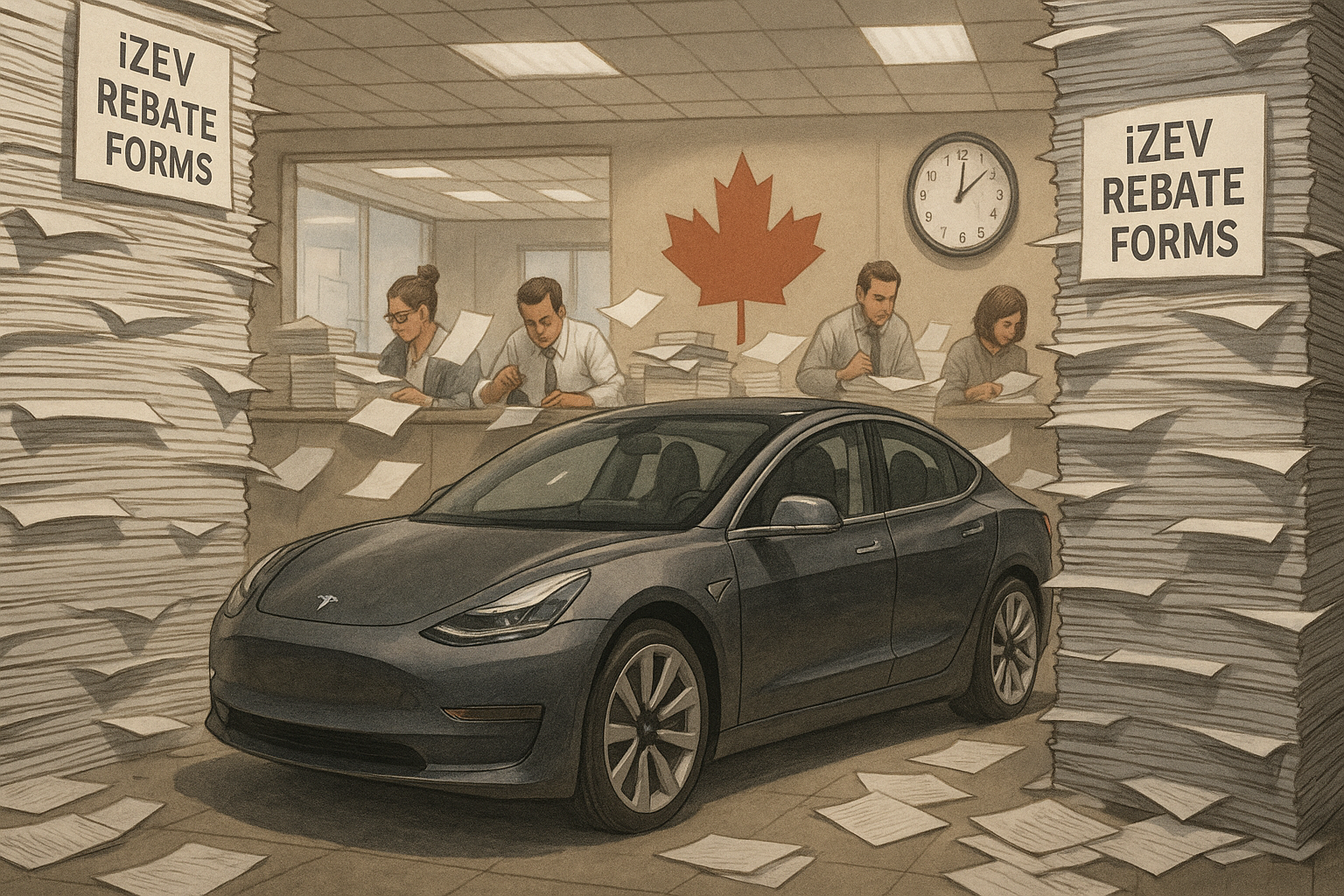Tesla just weathered what you might call a bureaucratic storm up north. Canadian officials have released approximately $43 million in electric vehicle rebates they'd frozen while investigating what looked, at first glance, like Tesla pulling a fast one with vehicle registrations.
And let's be honest—registering more than 8,000 vehicles in a single weekend does raise questions. That's not normal. It's like watching someone claim they read "War and Peace" overnight. Technically possible? Sure. Suspicious? You bet.
I've been following EV incentive programs since their inception, and this kind of last-minute rush always happens when deadlines loom. The drama centered around Canada's Incentives for Zero-Emission Vehicles program (iZEV to the policy wonks), which offers up to $5,000 back on qualifying electric vehicles.
Tesla, never one to leave cash on the table (have you seen their profit margins?), apparently went into bureaucratic overdrive before some program changes kicked in.
Look, there's something fascinating happening beneath the surface here. When governments create these hard-deadline programs, they're practically begging companies to game the system. Not illegally—just aggressively. It's perfectly predictable human behavior, like watching kids clean their rooms at lightning speed when you threaten to cancel dessert.
The weird thing about these rebate programs? They create these unnatural market spasms.
Sales spike before deadlines. Then crash. Then flatline until the next incentive appears on the horizon. Try charting actual consumer demand through that mess! (You can't.)
Tesla has gotten particularly good at this dance. Their entire delivery model—which famously bunches deliveries at the end of quarters—works perfectly for surfing these incentive waves. It's financial choreography set to regulatory music.
Having watched similar patterns play out in the solar industry—remember those investment tax credit cliffs?—I can tell you this isn't unique to EVs. Companies would work through Christmas to get solar panels installed before year-end tax benefits expired. Nature doesn't make these patterns; policy does.
The bigger question (which nobody in government seems eager to address) is whether these cliff-edge incentives make sense. Wouldn't a gradual, predictable phase-out create less market distortion? Probably. But then politicians couldn't point to specific end dates when talking budget impacts.
Whatever administrative staff processed those 8,000 registrations deserves a raise—or at least a very long vacation. That's a paperwork marathon few would envy.
In the end, Canada got what it wanted—more EVs on Canadian roads. Tesla got what it wanted—those sweet, sweet rebates. And we all got another lesson in how corporations will move mountains of paperwork when money's on the line.
That's how incentive programs work, folks. Set up the rules, and watch companies sprint right up to the line without crossing it.




